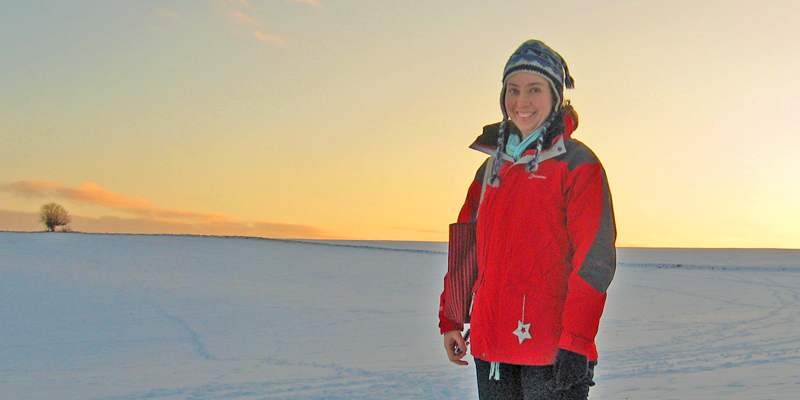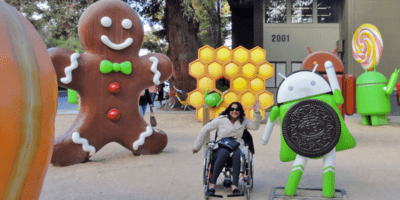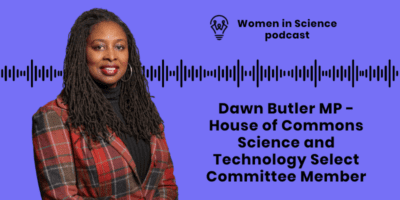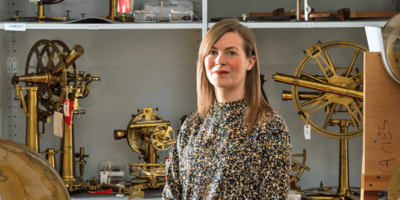Dr Solveig Felton is a senior lecturer in the School of Mathematics and Physics at Queen’s University Belfast, as well as being one of the deputy heads of the School. Prior to this she was a lecturer in Electron Microscopy at Imperial College London, working in the Department of Materials, using transmission electron microscopy to study micromagnetic properties of materials. She studied for two degrees at Uppsala University in Sweden, which included a six-month research visit to the University of Glasgow.
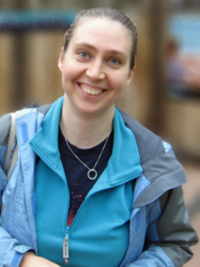
“One of the things that people sometimes don’t understand about science is that it isn’t a set of facts to learn, but a method for finding out how things work, or in many cases don’t work.”
From Uppsala to Ulster
I grew up in Sweden and went to university at Uppsala University there. My first degree is an MSc in Materials Engineering (2001), after which I got a PhD in Solid State Physics (2005), also at Uppsala University. After two different posts as a postdoctoral researcher, at the University of Warwick studying defects in diamonds, and at Imperial College London studying magnetic organic semiconductors, I got a temporary lectureship at Imperial using transmission electron microscopy to study magnetic microstructure.
In 2013 I secured a permanent academic post at Queen’s University Belfast as a lecturer in the School of Mathematics and Physics, and in 2019 I was promoted to senior lecturer in the same school.
[You can also read Solveig’s previous Womanthology piece.]
A jack-of-all-trades … and more
Being an academic is a bit of a jack-of-all-trades job — you are a researcher, a teacher and an administrator. My research is in the broad topic of magnetic properties of materials, as it has been for my whole scientific career.
My current projects are on a class of frustrated magnetic materials known as artificial spin ices and on molecular magnets. As well as doing research myself, I supervise PhD students and final-year undergraduates to undertake research within these topics.
I also teach university students, both undergraduates and postgraduates — I am lucky enough to mostly teach within my area of research expertise, so the magnetic properties of materials, although I also supervise undergraduate labs and hold tutorials for a small group of first-year students each year.
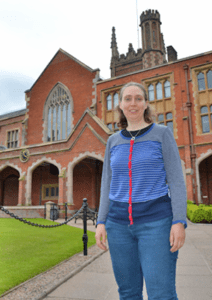
In autumn 2022 I became one of the deputy heads of the School of Mathematics and Physics, with a focus on the education side of the school, such as planning what programmes we will be offering to students and how to staff them.
No two days in this job are ever the same! A lot of what I do as deputy head of school is to talk to other people and help them work out for themselves the best solution to the problems they have. I also try to anticipate issues and, together with the rest of the school management team, put in place plans that minimise the number of problems that occur in the first place.
Diversity and inclusion without limits
To me, gender equality is about two main things: 1) giving everybody a fair chance to be and do what suits them best, without limitations due to preconceived notions of what is more suitable for men or women, allowing people to reach their potential. 2) making sure that science and engineering have access to the full range of talent that is out there to allow these fields to flourish as much as possible.
Gender equality is good for both individuals and us all as a society — if we limit who does science and engineering, we not only diminish the life of those individuals who could have enjoyed it, but we might also miss out on some of the most important new discoveries and insights.
Science isn’t a set of facts to learn
One of the things that people sometimes don’t understand about science is that it isn’t a set of facts to learn, but a method for finding out how things work, or in many cases don’t work.
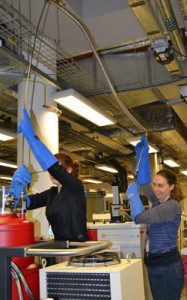
Science works by people asking questions, through conducting experiments and developing theories, about how the universe (or a particular part of it) reacts if you change something. Diversity of thought gives you the widest range of different questions and different ideas for what to change, and that is how we get new information that eventually becomes the scientific facts that are taught in schools, as well as underpin new technology and medical advances, for example.
Physicists helping other physicists work towards gender equality
As part of my work for gender equality I am a member of the Juno assessment panel, which is the Institute of Physics’ gender award scheme. However, Juno is more than that — it is a supportive community of physicists helping other physicists work towards gender equality in their institutions.
As part of the process of applying for Juno awards, institutions are offered visits from members of the panel, where they are asked to present what they are currently doing and get feedback on this before submitting the actual application for the different tiers of the award. (More information on Project Juno can be found here: https://www.iop.org/about/IOP-diversity-inclusion/project-juno#gref)
The Institute of Physics also organises meetings for the departments signed up for the scheme where people can share what they are doing that is working, as well as what they have tried that isn’t giving the expected results of improved gender balance.
Juno and Athena SWAN are closely connected, recognising awards from the other scheme, so that a physics department that has had a successful application for either Juno or Athena SWAN can go through a simplified process to ‘convert’ that award to the other scheme. Athena SWAN is a broader scheme not just for physics departments, providing gender equality awards for other disciplines and even whole universities.
Challenging stereotypes
One of the most important things every one of us can do is to challenge our own preconceived notions and encourage the young people around us in their interests and their talents, regardless of whether the thing they are interested in or good at is what is considered a traditional field for their gender or background.
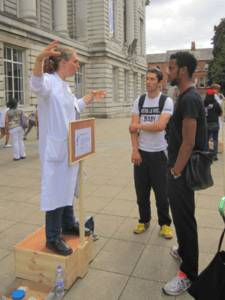
I love working in the university world and teaching students because I think education is one of the greatest social goods that exists. On an individual level, getting a good education can make your life better, giving you more opportunities and/or a better economic future. For society, education is vital for both its functioning and its further development.
New conversations with new colleagues
We have recently restructured how we organise the research centres in the School of Mathematics and Physics, mixing up the experimentalists like myself with theoreticians working on similar topics. This has lead to me talking to new colleagues, and sparking new ideas for scientific projects, like one I am working on involving machine learning and molecular magnetism with my colleagues David Wilkins from my School and Grace Morgan from the School of Chemistry at University College Dublin.
As part of the restructuring process, we have also acquired (among other things) a new nitrogen-vacancy centre microscope, which has the potential to allow me to perform new experiments on artificial spin ices with my colleague Dan Read from the School of Physics and Astronomy at the University of Cardiff. There is so much exciting and fun research to be done with so many interesting people!

